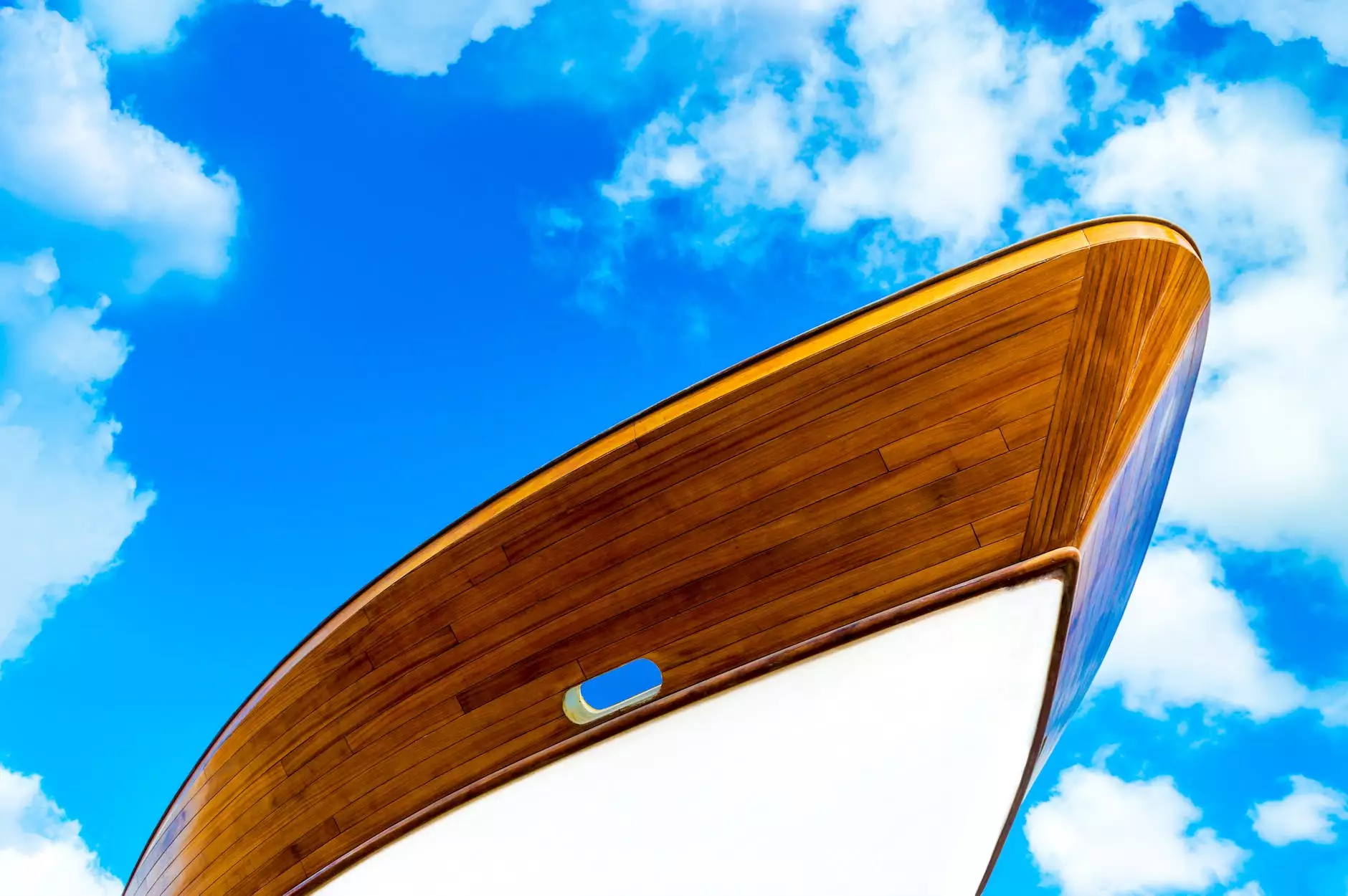Understanding the Private Yacht Cost: An In-Depth Exploration of Luxury Marine Investment

Owning a private yacht is often regarded as the epitome of luxury lifestyle and financial achievement. These majestic vessels symbolize freedom, opulence, and exclusivity. However, assessing the private yacht cost involves a multitude of factors that go far beyond the initial purchase price. Whether you're an aspiring yacht owner, an investor, or simply a maritime enthusiast, understanding the nuances behind the yacht's pricing structure is essential. This comprehensive guide aims to provide detailed insights into what influences the private yacht cost, the long-term ownership expenses, and the benefits of investing in a luxury vessel. By the end of this article, you'll possess the knowledge necessary to make informed decisions and maximize your investment in this extraordinary asset.
What Factors Influence the Private Yacht Cost?
Determining the price of a private yacht is a complex process, reflecting numerous variables. These include the yacht’s size, design, materials used, onboard technology, customization, and brand reputation. Let’s explore these elements in detail.
1. Yacht Size and Capacity
The private yacht cost is heavily influenced by its overall length and passenger capacity. Smaller yachts (around 30-50 feet) are generally more affordable, often ranging from $300,000 to $3 million. In contrast, superyachts exceeding 100 feet often cost upwards of $50 million or more. Larger vessels require more materials, advanced engineering, and extensive onboard amenities, all contributing to higher prices.
2. Design & Customization
Custom-designed yachts tailored to specific tastes significantly impact the private yacht cost. These bespoke vessels include unique hull shapes, interior layouts, and personalized features such as pools, helipads, or luxury spa centers. Customization can increase the price by 20-50%, depending on complexity.
3. Material & Construction Quality
High-end yachts often utilize superior materials like lightweight composites, titanium, and exotic woods, which enhance durability but elevate costs. The shipbuilding process itself, often handled by renowned manufacturers such as Feadship, Lürssen, or Benetti, also influences pricing due to their craftsmanship standards.
4. Technology & Equipment
State-of-the-art navigation systems, stabilization technology, entertainment options, and luxury fittings contribute significantly to the private yacht cost. High-performance engines and advanced safety systems further add to the overall expense.
5. Brand & Build Reputation
Yachts built by prestigious brands or with a history of excellence command premium prices. The manufacturer's reputation for quality assurance provides not just prestige but also assurance of durability and resale value.
Long-Term Ownership Costs Beyond the Initial Investment
Understanding the private yacht cost isn't complete without considering ongoing expenses related to ownership. These include maintenance, crew salaries, insurance, docking, and operational costs. Here is a detailed breakdown:
1. Maintenance & Repairs
Annual maintenance typically accounts for 10-15% of the yacht’s purchase price. Regular upkeep involves hull cleaning, engine servicing, system checks, and updates to onboard electronics. Larger yachts require more extensive and costly repairs.
2. Crew & Staffing
Most private yachts need a dedicated crew, including captain, engineers, deckhands, stewards, and chefs. Salaries can vary from $100,000 to $500,000 annually, depending on yacht size and crew level of expertise. Tips, training, and uniforms are additional costs to consider.
3. Insurance & Registration
Comprehensive insurance policies protect against accidents, theft, and environmental damage, typically costing 1-2% of the yacht value annually. Registration fees vary depending on the flag state and jurisdiction.
4. Docking & Storage
Marina fees differ greatly by location, season, and yacht size. Premium cruising destinations like the Mediterranean or Caribbean can cost from $50,000 to over $500,000 per year.
5. Fuel & Operational Expenses
Fuel consumption is a significant recurring expense, especially for large yachts with powerful engines. Fuel costs depend on usage, cruising speed, and routes, with an average annual fuel expense ranging from $200,000 to over $1 million.
Are Private Yachts a Good Investment?
Many consider private yacht ownership a luxurious lifestyle choice, but it's also a noteworthy investment opportunity. From appreciating assets to income-generating charters, yachts can serve multiple roles in wealth diversification.
Benefits of Owning a Private Yacht
- Exclusive Lifestyle & Recreation: Access to private, luxurious cruising experiences for personal pleasure.
- Potential Income Generation: Charter operations can offset ownership costs and generate income.
- Asset Appreciation: In some cases, yachts appreciate in value, especially limited edition or well-maintained vessels.
- Networking & Business Opportunities: Hosting events and business meetings onboard in a prestigious setting.
Risks & Considerations
- Depreciation: Most yachts depreciate over time, with significant drops in value after a few years.
- High Maintenance & Operational Costs: Ongoing expenses can be a financial burden if not properly managed.
- Market Volatility: Economic fluctuations can impact resale value and charter profitability.
- Environmental Regulations & Sustainability: Increasing regulations on emissions and eco-friendliness may influence ownership costs.
How to Calculate the Private Yacht Cost?
Calculating the total private yacht cost involves summing the initial purchase price with estimated ongoing expenses. Here’s a simplified approach:
- Purchase Price: Base price depending on size, design, and brand.
- Customization & Equipment: Additional features and upgrades.
- Estimated Annual Maintenance & Operations: 10-15% of the purchase price annually.
- Additional Expenses: Insurance, crew salaries, docking, fuel, and taxes.
By considering these components, potential yacht owners can develop a realistic budget, ensuring their investment aligns with their financial capabilities and lifestyle goals.
Making an Informed Decision in Private Yacht Buying
Buying a private yacht is a transformational investment requiring thorough research and professional guidance. Here are key tips:
- Work with Renowned Yacht Brokers: Experts can navigate the market, identify reputable vessels, and negotiate better deals.
- Arrange for Professional Inspection & Survey: Ensure the yacht's condition matches its valuation.
- Consider Future Resale Value: Focus on yachts with a strong reputation, proven durability, and classic designs.
- Evaluate Total Ownership Cost: Plan for long-term expenses to prevent financial strain.
- Explore Charter Opportunities: Generating income through charters can offset costs and enhance investment returns.
Conclusion: Embracing the Luxury of the Private Yacht Cost
Investing in a private yacht is more than acquiring a vessel; it's about embracing a lifestyle of unparalleled luxury, adventure, and strategic financial planning. While the private yacht cost can be substantial, understanding the intricacies of pricing, expenses, and investment potential enables discerning buyers to make informed decisions. Whether you seek a vessel for leisure, business, or appreciation, owning a yacht is an extraordinary experience that offers immense personal and financial rewards when approached with knowledge and responsibility.
As you explore the possibilities in the elegant world of yachting, remember that comprehensive planning and expert guidance are your best allies. The journey to yacht ownership might be complex, but with the right insights, it becomes an achievable and profoundly rewarding pursuit.









